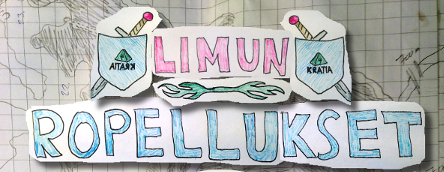Greg Costikyan on yksi pelialan vanhoista jääristä, joka on tainnut uransa aikana herättää närää “väärillä mielipiteillään” useammin kuin kerran. Kirjoittelin jo kesäkuussa Costikyanista täällä, liittyen hänen kanssaan tehtyyn kiinnostavaan haastattellun. En ole aikaisemmin tutustunut mitenkään älyttömän tarkasti hänen tuotantoonsa, mutta nyt osui taas silmään kiinnostava Costikyanin tekemä arvostelu hänen kotisivuillaan.
Kyseessä on Paul Czegen My Life with Master -pelin arvostelu vuodelta 2008. Peli on käännetty myös suomeksi nimellä Kätyrin osa, josta voi kiittää Eero Tuovisen ja kumppaneiden Arkkikivi-kustantamoa. Vaikka My Life with Master ei ole mikään uunituore peli, eikä Costikyanin arvostelukaan tuoreimasta päästä, pisti silmään kuinka selväjärkisesti ja tarkkanäköisesti Costikyan kirjoittaa peleistä ylipäänsä. Erityisen hyvin arvostelu selittää mielestäni roolipelien tarinan, valinnanvapauden ja sääntöjen välistä problematiikkaa, kontekstoiden aihetta samalla myös historiallisesti:
In short, tabletop roleplaying, which began as an outgrowth of wargaming, rapidly became, at least for some players, a form of rules-guided improvisational theater. And yet the rules of most games were inherently unsuited to this: they required extensive table look-ups, rote memorization of minor die-roll modifiers, etc., so that the action was often interrupted to look up and apply some minor rule, with a consequent break in both narrative and the spontaneity of the actors.
[…]
My Life with Master is a serious attempt to grapple with, and solve, the central conflict between story and game: that plots are inherently linear (that is, that any deviation from the plot is likely to produce a less compelling story) while games that do not provide players with the sense of freedom of action are inherently unsatisfying.
[…]
Because of the simulationist origin of the tabletop RPG, the usual paradigm is to constrain a character’s action from moment to moment through a set of rules that simulate actions and their consequences. Thus, when you pick a lock, you roll dice (or apply some other system) to determine whether or not you succeed. However, the usual RPG provides no functional constraint on the evolution of the story; instead, the story is supposed to magically emerge from the decisions and actions of the player-characters, coupled with the gamemaster’s desperate improvisation. In other words, actions are rules-bound, the story is freeform.
